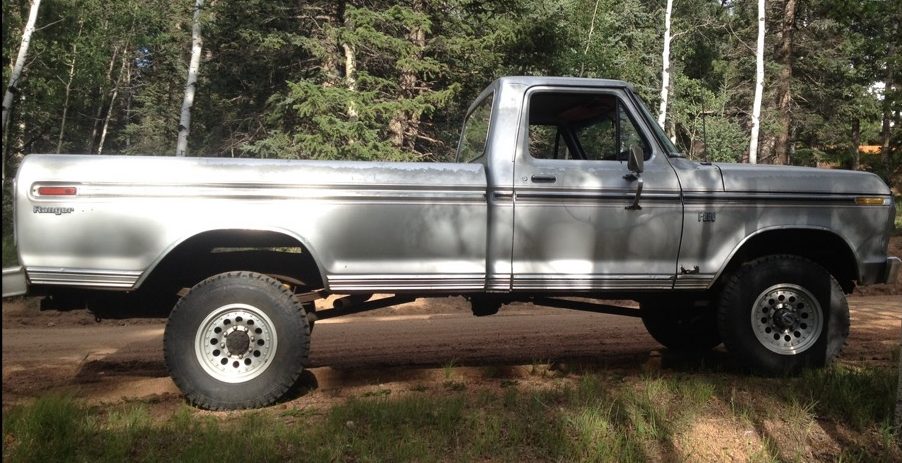When you get an instant quote for a truck on our website there are two truck classifications to choose from: “Truck / Large SUV” or “Cargo Van / XL Truck” as shown in this screenshot:

Most truck owners will select the “Truck / Large SUV” classification. This classification includes standard-size stock trucks. Standard-size trucks are those that fall in the 150, 250, 350, 1500, 2500, and 3500 series trucks. Standard size trucks also include models such as the Honda Ridgeline, Toyota Tacoma and Tundra, and Nissan Frontier and Titan.
All other “big” trucks (i.e. 450 and 4500 series trucks) fall in our XL truck classification and are more expensive to ship because of their size and weight.
Stock trucks are trucks that come from the factory without modifications that alter their factory footprint or weight.
These are the types of modifications that alter the truck’s footprint and weight and may require extra charges:
- Lifted suspension (adds height)
- Lowered suspension (lowers height and clearance)
- Oversized tires (adds height and weight)
- Diesel engine (adds weight)
- Long box (adds length and weight)
- Custom flat bed (adds width and/or length, often adds weight)
- Dually (adds width and weight)
- Extended roof toppers (adds height)
- Plows (adds length and weight)
As you can see, with the exception of the lowered suspension modification, all of the modifications will make a truck bigger and/or heavier. When vehicles get bigger or heavier, they affect the carrier’s loading capacity. Carriers only have so many spots on a trailer, and they can only haul so much weight at a time.
If a truck gets too big or too heavy, it may end up taking up two spots on the trailer. The carrier doesn’t necessarily charge double when this happens, but they do charge a lot more since they are losing out on an additional vehicle they would normally be able to haul.
In the case of truck with a lowered suspension, the challenge is loading and unloading it safely so the truck doesn’t bottom out and get damaged. These trucks are commonly referred to as “hot rods.” These can be incredibly challenging to transport. Our selection of carriers that can handle this type of truck may be limited so we have to charge more to get the job done properly.
The extra charges for modifications will vary but typically it ranges from as little as $100 to as much as $500. On average, the typical extra charge for modifications is around $200.
When you place an order with us, we verify the order with you on the phone the same business day, or the next business day if you place your order after hours. During that verification call we will get all the details about your truck, your shipping route, your timing, and any other details pertinent to the transport.
If you tell us your truck has any of the modifications listed above, we will typically ask you to send us a photo or two of the truck so be prepared for that. We’ll then let our dispatchers know right away. Our dispatchers will review the order and the photos and will determine if the modifications require any additional charges. If they do, you’ll be notified immediately by phone.
If you don’t agree to the additional charges, no big deal. We’ll simply cancel your order and issue you a full refund of your 10% deposit.
Keep in mind, we do all of this within hours of receiving your order. This isn’t something that drags on for days. You’ll know within hours, or the next business day if you place your order after hours, if your truck is going to cost more to ship than what you booked your order for.
If you want to avoid the hassle of placing an order and finding out afterwards that there will be additional charges because of your truck’s modifications, then we encourage you to call us at (800) 656-7638. We can discuss the details of your truck and let you know before you book an order what (if any) the additional charges are for the truck’s modifications. Then if you’re comfortable with everything we can book the order for you over the phone, or you can book the order online at your own convenience.

